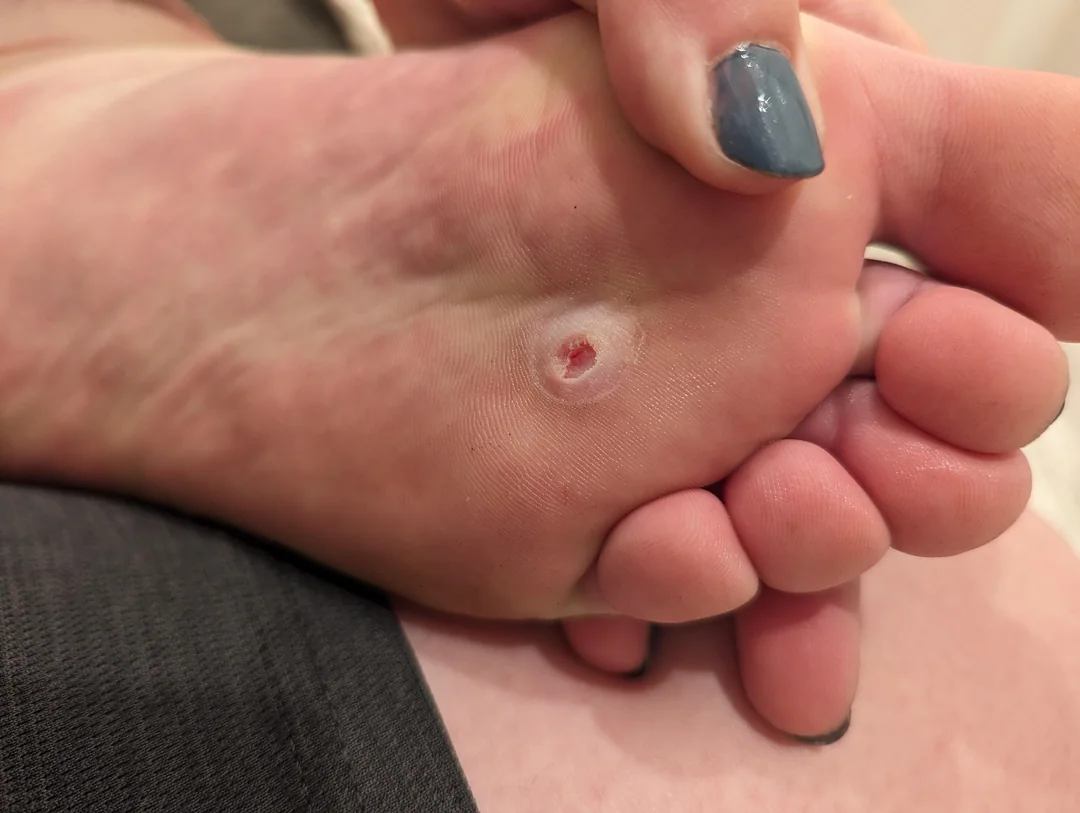Doctors Warn Against Going Barefoot in Public Spaces: Risk of Plantar Warts from HPV Infection
July 2, 2025 — Health & Wellness Desk — While many people are accustomed to bathing barefoot, health experts are urging the public to take extra precautions, especially when staying in hotels or using public facilities such as swimming pools, gyms, or locker rooms. Medical professionals warn that going barefoot in these environments increases the risk of contracting plantar warts, a painful condition caused by the human papillomavirus (HPV).
Plantar warts are benign skin growths that develop on the soles of the feet. They are triggered by low-risk subtypes of HPV, such as types 1, 2, 4, 27, and 57. Although these strains do not lead to cancer, they can cause painful keratinized lumps on the feet, often marked by small black dots — a sign of capillary bleeding. The pressure caused by walking can make these warts extremely painful and disruptive to daily activities.
According to reports from Chinese media outlets, doctors emphasize that plantar warts are most commonly contracted in humid environments, where the virus spreads easily through skin contact and shared water sources. Walking barefoot on floors previously used by infected individuals, even unknowingly, can result in transmission.
One of the more concerning aspects, doctors note, is that HPV can be spread even by asymptomatic individuals, making prevention all the more critical. The following groups are at higher risk and should be especially vigilant:
-
Individuals with weakened immune systems
-
People whose feet frequently sweat or are prone to friction
-
Those with cuts or broken skin on their feet
-
Young adults (a group that statistically shows higher incidence than children)
To reduce the risk of infection, experts recommend wearing waterproof slippers in public showers, pools, and hotel bathrooms, and avoiding direct contact with wet or communal surfaces. Keeping the feet dry and not sharing personal items like towels or slippers are also essential preventive measures.
Many patients initially confuse plantar warts with corns or calluses. However, signs such as black spots within the lesion, thickened skin, and sharp pain when pressed should prompt immediate medical attention. Delaying treatment can result in the spread of the lesions, potentially impairing normal walking and even work productivity.
Finally, doctors remind the public that even though plantar warts are caused by low-risk HPV, they can be persistent and painful. Prevention begins with one simple habit: don’t go barefoot in public spaces. Whether you’re staying in a hotel or using a communal shower, wear protective footwear and use only your own hygiene products to protect yourself from infection.



